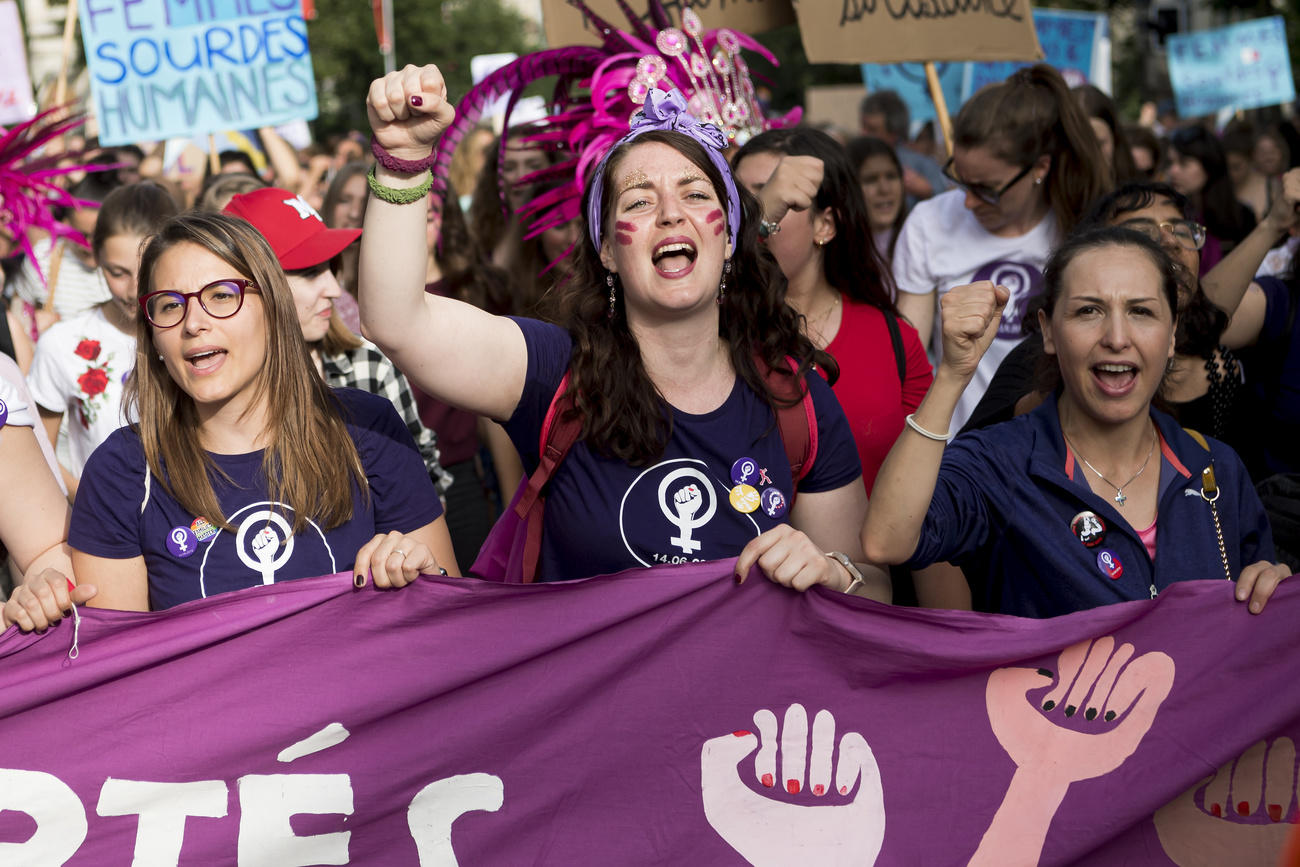
Swiss women demand measures for childcare, essential workers

One year after a massive women’s strike in Switzerland, an alliance of women’s groups has reaffirmed the need for equal treatment and conditions, and urgent action on issues like childcare during the coronavirus crisis.
Some 50 women’s organisations in the wealthy Alpine nation have sent an open letterExternal link to the Swiss government and parliament demanding better representation of women among decision-makers and action on other specific issues.
The authors also call for modern family-friendly policies to ensure a better balance of professional and private life, greater commitment to combating violence against women and support for migrant women.
Swiss women’s organisations say unequal treatment persists, including lower pay, with women on average earning 20% less than men.
They insist that childcare, which has been a key issue during the pandemic, should be much better regulated in the future. Women provide one billion hours of unpaid childcare, the authors say. The virus laid bare the fact that without extensive family support or grand-parents, Switzerland’s childcare system cannot function properly.
“If we wish to call upon all active women and men to rebuild the Swiss economy, to minimise the shortage of skilled workers and create a new start, then we need in parallel a professional state-financed childcare offensive,” the authors wrote.
The letter also calls for the working conditions and salaries of women in professions deemed “essential” during the pandemic to be better rewarded.
“Around 86% of all nursing staff, 92% of all childcare workers and two-thirds of all retail employees are women. At the same time, it is precisely here that working conditions are miserable and wages are far too low,” it said.
The authors insist that the financing of Covid-19 economic measures should not be made, as in previous crises, via savings in areas that disproportionately affect women.

More
Huge turnout for women’s strike in Switzerland

In compliance with the JTI standards
More: SWI swissinfo.ch certified by the Journalism Trust Initiative




























You can find an overview of ongoing debates with our journalists here . Please join us!
If you want to start a conversation about a topic raised in this article or want to report factual errors, email us at english@swissinfo.ch.